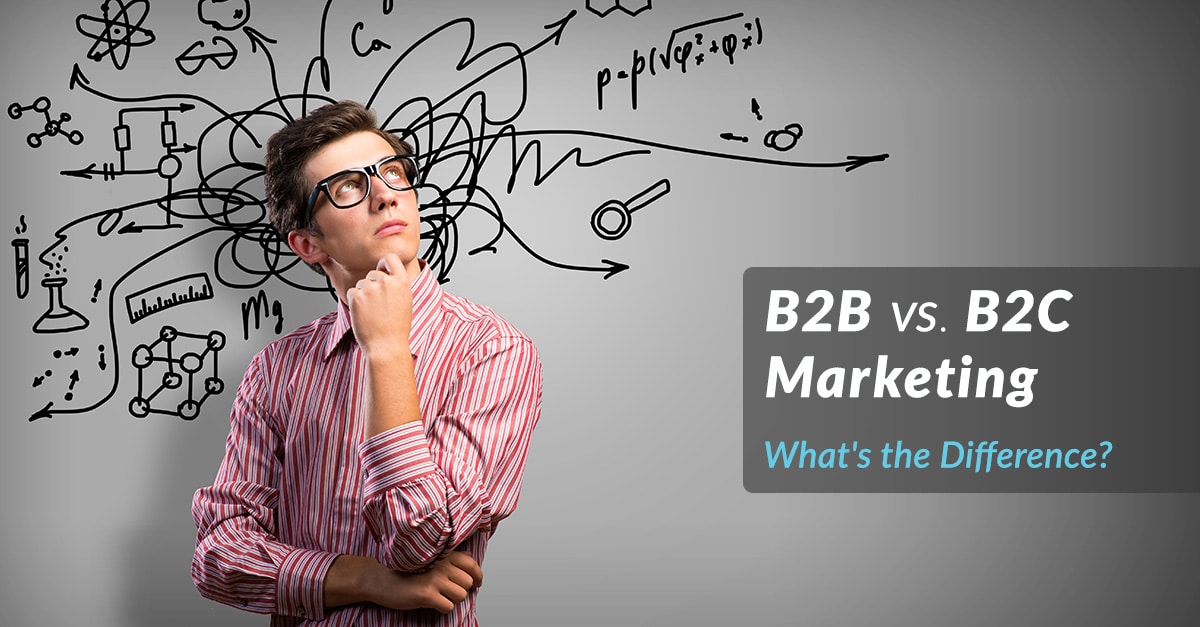
Being able to name something is exceptionally valuable – it enables you to know what to search for when you’re researching a particular topic. When it comes to marketing, there is a wealth of knowledge online, but if your search begins with “marketing advice” you’re going to spend a lot of time sifting through irrelevant results. To quickly find the advice that matters to you, it’s good to understand if your business fits into the B2B or B2C category for sales and marketing.
B2B companies are businesses that sell to other businesses (business to business), while B2C businesses sell directly to consumers (business to consumer). The sales cycle, expectations, and best practices for closing sales vary greatly between these two audiences.
B2B Marketing and Sales
B2B sales are typically viewed as complex because the sales process involves multiple decision makers and usually happens over a longer period of time, compared to a B2C sale. Individuals making purchases for their businesses tend to place more focus on the problem the product solves or the efficiency that is created.
B2B buyers are not always in a buying mode; so having a robust lead nurturing program is important. Equally important, marketers will need a way to deliver leads to the sales funnel. Many B2B marketers are investing in thought leadership pieces to generate leads. Thought leadership pieces range from downloadable checklists to white papers, to presentations on SlideShare. Once the lead has entered the funnel, B2B marketers will typically take some action to qualify the lead – is this person looking to buy now, in the next month, within the next three months, or are they just “kicking the tires.” Well-designed lead nurturing programs will have content available to leads that drop into each of these buckets and will help move the lead closer to the sale.
B2C Marketing and Sales
On the B2C side of marketing, don’t believe the folks who tell you B2C sales are less sophisticated or more emotionally driven than B2B sales – we are living in the information age and consumers have more information (and expect more information) than ever before. As Think with Google notes, with a wealth of information at their fingertips “people are researching before every decision they make—major or minor.”
As a B2C marketer, you need to anticipate questions and have answers ready for your customers. You need to know where your customers hang out online and be ready to meet them on their terms. Given all the channels your customers are using, (Facebook, Instagram, Twitter, email, blogs, etc.), figuring out where to place your answers can be a daunting task. Those B2B folks might have it easier!
Wrapping Up
It can be nearly impossible to find relevant marketing and sales advice if you don’t know which category your business fits into. Moreover, understanding the high-level sales cycle of your customers can help you focus your content creation and marketing strategy. Once you are started down the right path, you can analyze your data and refine your marketing and sales efforts to improve your sales conversion rate.
